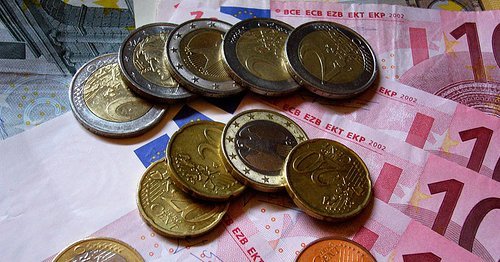To understand the significance of the proposal to give the Euro-zone tools similar to those of the IMF, one must not forget that the launch of the Euro represented an unprecedented challenge. European countries have adopted a single currency without the economic and political conditions for the existence of a common monetary fund being fully realised. In the modern world of paper money, a currency must necessarily refer to a State, which constitutes the last guarantor of the value of means of the payment. Adding the technical-economic unification policy exceeds the threshold of irreversibility when you create a union tax, i.e. when you decide together the policies of tax and expenditure and there are mechanisms for automatic transfer of resources from regions or countries in good condition to partners affected by an economic crisis.
While in Italy, as a region of Basilicata is hit by a recession, the existence of a common budget in the Italian state will guarantee a series of aid (and lower taxes) which will make the recession less severe. Such a mechanism at the European level does not exist, if only because the common budget is laughable, as it represents only one per cent of the wealth produced annually by the Europeans.
To understand the significance of the proposal to give the Euro-zone tools similar to those of the IMF, one must not forget that the launch of the Euro represented an unprecedented challenge
Apparently, the Euro has worked very well during its first decade of it’s life and indeed has been a shield against external shocks. What would happen to the pound and Italian interest rates during the global economic crisis if Italy’s old currency still existed?
The entire Euro-area imbalances were accumulating however. The peripheral countries, after their accession, had seen a very substantial decline in rates and have experienced a boom at the beginning. When the boom was interrupted due to the global crisis, such countries were left with the weight of a differential competitiveness and a debt level which could endanger its solvency. Greece, for example, is the country which sits in the most exposed group of economies, along side Portugal, Spain, Ireland and Italy.
Faced with the threat that the Greek crisis calls into question not only the membership of this country in the Euro zone, but the entire building of the single currency, the only way forward is to strengthen the economic union, thus stimulating a principle of political union in Europe. The alternative would be to let the Euro die, calling into question the very basis of the integration process.
the Euro has worked very well during its first decade of it’s life and indeed has been a shield against external shocks
Sarkozy and Merkel have understood the situation and have proposed the launching of an EMF, which in practice means giving of aid to countries in difficulty, whilst strongly linking their fiscal policies, and then creating a core group of European Union tax payers.
Stark, who sits on the Executive Committee of the European Central Bank (ECB) is not in agreement as he fears that the new institution would reduce the autonomy of the latter. Only now has he realised that without a beginning of fiscal union in Europe, the ECB itself is likely to die sooner or later if the Euro fails.


Follow the comments: |
|
